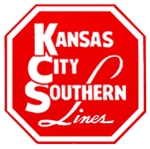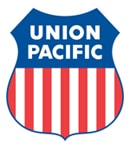CLEVELAND, Ohio, (January 13, 2022) — Yesterday, members of the Transportation Division of the International Association of Sheet Metal, Air, Rail, and Transportation union (SMART-TD) and the Brotherhood of Locomotive Engineers and Trainmen (BLET) who work for the BNSF Railway initiated steps to go on strike following the railroad’s announcement of its so-called “Hi-Viz” attendance policy, which SMART-TD President Jeremy Ferguson and BLET National President Dennis Pierce called “the worst and most egregious attendance policy ever adopted by any rail carrier.”
Presidents Ferguson and Pierce said the impending policy, which BNSF plans to implement on February 1, repudiates numerous collectively bargained agreements currently in place throughout the BNSF system. It is so restrictive that employees would be penalized for missing work to attend the funeral of an immediate family member.
“This unprecedented BNSF policy repudiates direct and clear contract language and, in application, will attempt to force our members to report for duty without regard for their medical condition as we struggle to come out of a pandemic,” the presidents said. “It also stands to take away any ability by our members to avoid working fatigued when they are routinely called without warning due to the complete lack of reliable train lineups, thus creating the potential for an even more unsafe railroad operation. So-called ‘forced overtime’ in an industry where safety is so critical not only repudiates our agreements, it stands to enact irreparable harm on hundreds of full-time employees whose non-workplace obligations prevent them from being at work every day of their life.”
BNSF’s new Hi-Viz policy is a points-based system which penalizes employees — who in many cases have no assigned days off — any time they take time off work for practically any reason. In a FAQ that BNSF sent out to its employees, the carrier claimed that they “must improve crew availability to remain competitive in the industry” and that their revised Hi-Viz program helps with this issue “by incentivizing consistent and reliable attendance.” BNSF goes on to claim that a reduction in absenteeism will improve predictability of work assignments. However, the affected employees and their unions have made clear that they view BNSF’s approach to this issue as a juxtaposition. That is: if the carrier instead focused its efforts on predictable scheduling of assignments and competent management of its furloughed employees, there would be no need to impose such draconian attendance policies.
“Our members have simply had enough of the treatment they are enduring from the BNSF Railway,” President Ferguson and President Pierce said. “The Company’s half-baked attempt to characterize this policy as an ‘improvement’ and an ‘incentive’ is nothing short of disingenuous, and outright insulting. Although BNSF will not admit it, it has implemented so-called Precision Scheduled Railroading and is attempting to do more with less by intimidating our members, under threat of discipline and/or termination, into working additional shifts while they continue to furlough junior employees. Our members have worked tirelessly to keep goods moving during a global pandemic, but the railroad is once again placing monetary profits over people to appease shareholders and Wall Street. Our membership is tired, frustrated and fed up with the treatment they continue to receive. As is the growing trend among all major rail carriers, the working conditions at BNSF have deteriorated to the point that there are many tenured employees leaving the railroad industry because they can no longer tolerate the treatment that they must endure on a daily basis. This new attendance policy may be the tipping point for what may be the ‘great railroad resignation.’”
On January 12, President Ferguson and President Pierce gave permission to their organizations’ respective BNSF General Committees of Adjustment to begin polling their membership regarding a withdrawal from service over this major dispute. Under the SMART Constitution, the union’s leadership may authorize a strike after the affected General Chairpersons obtain two-thirds majority approval from the Local Chairpersons under their jurisdiction. Under BLET internal law, a majority of the membership at any given railroad, or their Local Chairmen, must vote in favor of a strike and the National President and the General Chairmen must approve the date for any withdrawal from service.
Collectively, the unions represent more than 17,000 active members at the BNSF.
###
The SMART Transportation Division is comprised of approximately 125,000 active and retired members of the former United Transportation Union, who work in a variety of crafts in the transportation industry.
The Brotherhood of Locomotive Engineers and Trainmen represents nearly 57,000 professional locomotive engineers and trainmen throughout the United States. The BLET is the founding member of the Rail Conference, International Brotherhood of Teamsters.






